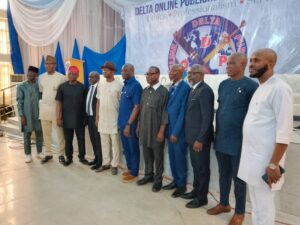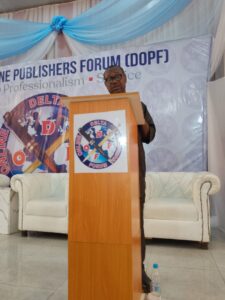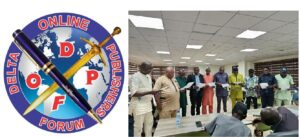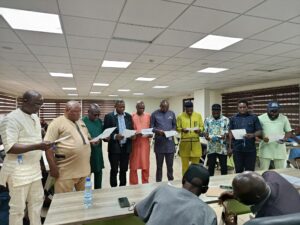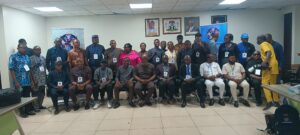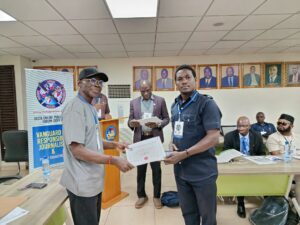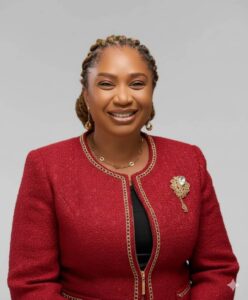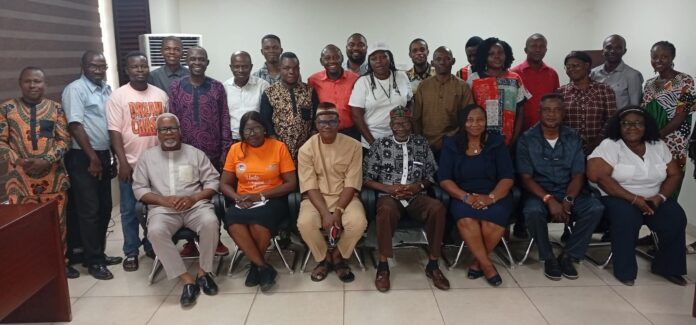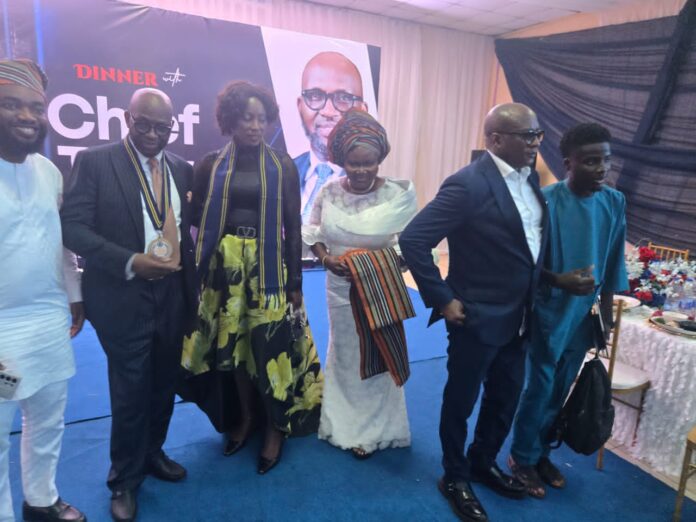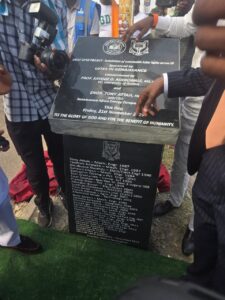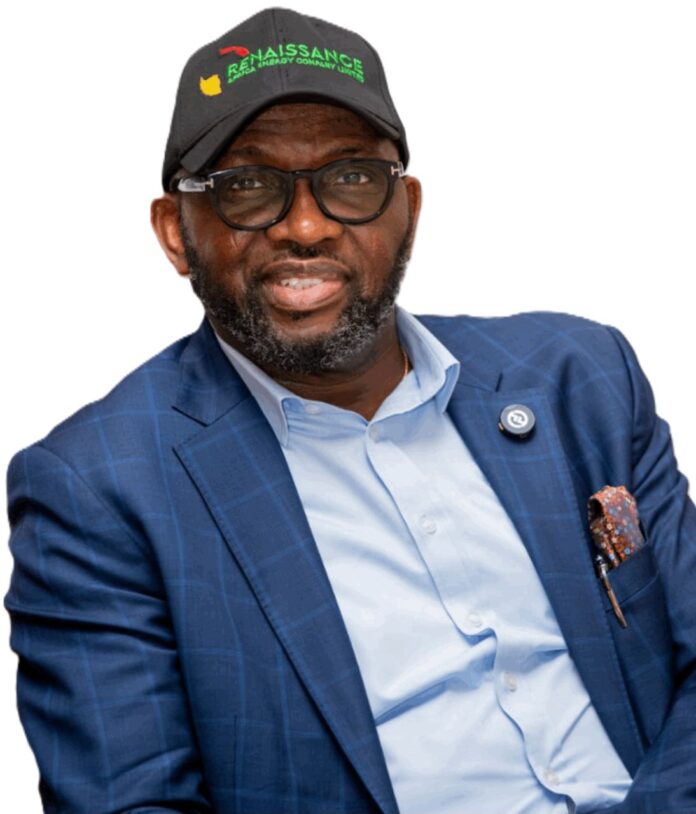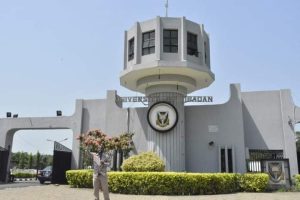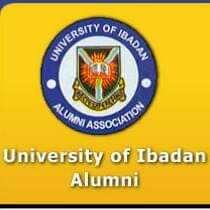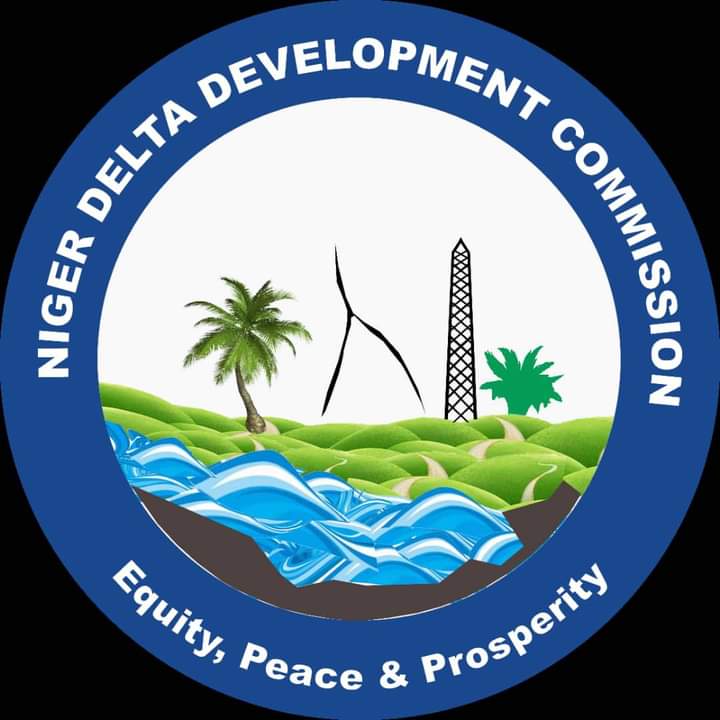By ENITAN ABEL JOHNGOLD ORHERUATA, mnipr
A prominent Niger Delta peace advocate and climate activist has issued a strongly worded public disclaimer after an old photograph of him resurfaced online with a false and defamatory label identifying him as Mohammed Yusuf, the late leader of the Boko Haram terrorist sect.
The advocate—whose dance in full Urhobo regalia at the COP30 Climate Summit in Belem, Brazil, recently went viral on Instagram with over 140,000 views—said the sudden resurgence of the misleading narrative has caused him and his family enormous distress.
According to him, the trouble began anew shortly after clips of his COP30 cultural dance gained traction. At the same time, a 2008 photograph of him standing with His Royal Highness Mujahid Dokubo-Asari, Amanyanabo of the Source, and Papa Ayo Oritsejafor, former President of the Christian Association of Nigeria (CAN), began to circulate widely.
He explained that the photo was taken during his tenure as President of the Niger Delta Christian Youth Movement (NDCYMN) and as spokesperson of the Niger Delta People’s Salvation Front (NDPSF), during an advocacy visit aimed at promoting peace and social justice in the region. Yet, online commentators falsely tagged him as Boko Haram’s founder, a claim he says originated from public commentator Kayode Ogundamisi in October 2014 and has resurfaced repeatedly for over a decade.
“This false labelling has trended for eleven years,” he stated. “In keeping with my commitment to Kingian Nonviolence and peacebuilding, I have exercised restraint. But it has become necessary to issue this public disclaimer.”
He has now given all individuals and platforms involved—including Kayode Ogundamisi, Tunde Ednut, Oris Oriyomi, Abu Jafar, Bello Isiaka, Wada M. Wali, Zainab Oyinkansola Abdulkarim, The Reliant News, Paul Okoye, Chukwuemeka Nwabunike, Chapton Festus and others—a seven-day ultimatum, effective Sunday, November 30, 2025, to retract the “false, defamatory, and ridiculous” claims and publish a public apology.
He warned that beginning Monday, December 8, 2025, he will commence legal action against anyone who has published, reposted, or endorsed the misinformation.
“I am not a terrorist, neither am I a member of any terrorist organization,” he declared. “The level of public concern and damage this narrative has caused my family is unacceptable.”
He emphasized that his peacebuilding credentials are well documented, particularly through his role with the Dr. Allen Onyema Foundation for Ethnic Harmony in Nigeria (FEHN), where he served as a trainer in the Federal Government’s Disarmament, Demobilization, Rehabilitation, and Reintegration (DDRR) Amnesty Programme for ex-agitators in the Niger Delta.
While maintaining that he prefers reconciliation to confrontation, he insists the time has come to put an end to the persistent falsehood.
He extended appreciation to those who alerted him to the circulating misinformation and urged the public to furnish him with additional names of individuals promoting the “satanic narrative.”
“I remain an Activist, Civicist, Pan-Africanist, Climate Actionist, and Self-Determinationist committed to the greater good of humanity,” he concluded. “I am not a terrorist.”


